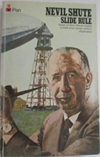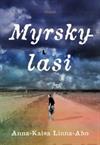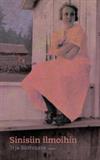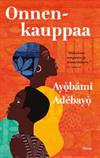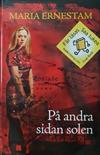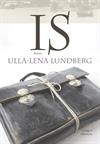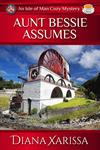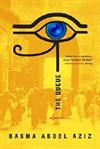
The Queue
2 journalers for this copy...
I stopped at Whodunit Books to buy some Christmas presents and they gave me a present too. The blurb on the back says:
Set against the backdrop of political revolution, The Queue is a chilling debut that evokes Orwellian dystopia, Kafkaesque surrealism, and a very real vision of life after the Arab Spring.
Basma Abdel Aziz is an Egyptian journalist and psychiatrist who treats torture victims at Cairo's Nadeem Center, which was raided and closed by Egyptian authorities earlier this year. She has long been a vocal critic of government oppression in Egypt, has published several works of nonfiction and earned the nickname "The Rebel" for her outspoken struggle against injustice, torture, and corruption. This is her first book translated into English. She lives in Cairo.
Amazon Editorial Review
"The Queue ... has drawn comparisons to Western classics like George Orwell’s 1984 and The Trial by Franz Kafka. It represents a new wave of dystopian and surrealist fiction from Middle Eastern writers who are grappling with the chaotic aftermath and stinging disappointments of the Arab Spring." -- The New York Times
Winner of the English PEN Translation Award
In a surreal, but familiar, vision of modern day Egypt, a centralized authority known as ‘the Gate’ has risen to power in the aftermath of the ‘Disgraceful Events,’ a failed popular uprising. Citizens are required to obtain permission from the Gate in order to take care of even the most basic of their daily affairs, yet the Gate never opens, and the queue in front of it grows longer.
Citizens from all walks of life mix and wait in the sun: a revolutionary journalist, a sheikh, a poor woman concerned for her daughter’s health, and even the brother of a security officer killed in clashes with protestors. Among them is Yehia, a man who was shot during the Events and is waiting for permission from the Gate to remove a bullet that remains lodged in his pelvis. Yehia’s health steadily declines, yet at every turn, officials refuse to assist him, actively denying the very existence of the bullet.
Ultimately it is Tarek, the principled doctor tending to Yehia’s case, who must decide whether to follow protocol as he has always done, or to disobey the law and risk his career to operate on Yehia and save his life.
Written with dark, subtle humor, The Queue describes the sinister nature of authoritarianism, and illuminates the way that absolute authority manipulates information, mobilizes others in service to it, and fails to uphold the rights of even those faithful to it.
Set against the backdrop of political revolution, The Queue is a chilling debut that evokes Orwellian dystopia, Kafkaesque surrealism, and a very real vision of life after the Arab Spring.
Basma Abdel Aziz is an Egyptian journalist and psychiatrist who treats torture victims at Cairo's Nadeem Center, which was raided and closed by Egyptian authorities earlier this year. She has long been a vocal critic of government oppression in Egypt, has published several works of nonfiction and earned the nickname "The Rebel" for her outspoken struggle against injustice, torture, and corruption. This is her first book translated into English. She lives in Cairo.
Amazon Editorial Review
"The Queue ... has drawn comparisons to Western classics like George Orwell’s 1984 and The Trial by Franz Kafka. It represents a new wave of dystopian and surrealist fiction from Middle Eastern writers who are grappling with the chaotic aftermath and stinging disappointments of the Arab Spring." -- The New York Times
Winner of the English PEN Translation Award
In a surreal, but familiar, vision of modern day Egypt, a centralized authority known as ‘the Gate’ has risen to power in the aftermath of the ‘Disgraceful Events,’ a failed popular uprising. Citizens are required to obtain permission from the Gate in order to take care of even the most basic of their daily affairs, yet the Gate never opens, and the queue in front of it grows longer.
Citizens from all walks of life mix and wait in the sun: a revolutionary journalist, a sheikh, a poor woman concerned for her daughter’s health, and even the brother of a security officer killed in clashes with protestors. Among them is Yehia, a man who was shot during the Events and is waiting for permission from the Gate to remove a bullet that remains lodged in his pelvis. Yehia’s health steadily declines, yet at every turn, officials refuse to assist him, actively denying the very existence of the bullet.
Ultimately it is Tarek, the principled doctor tending to Yehia’s case, who must decide whether to follow protocol as he has always done, or to disobey the law and risk his career to operate on Yehia and save his life.
Written with dark, subtle humor, The Queue describes the sinister nature of authoritarianism, and illuminates the way that absolute authority manipulates information, mobilizes others in service to it, and fails to uphold the rights of even those faithful to it.
I have been reading a few more books by Muslim authors recently but I still can't say that I am well read in that culture. And I still have trouble keeping the difference between Sunni and Shia Muslims straight in my head. I am determined to persevere though and that's one of the reasons I picked this book up when I saw a used copy in my favourite bookstore, Whodunit. Then a younger relative highlighted this book as one that had an impact on him so my curiousity was really piqued.
The author is Egyptian but this book is set in some unnamed Middle East country that is governed by a totalitarian regime. The author is a doctor so it perhaps is not surprising that one of the main characters is a physician called Tarek. The other main character is a man named Yehya who was wounded during an uprising against the government; his friends carried him to the hospital Tarek works at and Tarek examined him. Yehya had been shot and the bullet was still lodged in his abdomen but before Tarek could operate to remove the bullet he was reminded by a colleague that he could not remove a bullet until there was written permission from the government. Yehya would have to stand in the Queue before The Gate to obtain this permission. Many other people were standing in the Queue to also ask for various types of permits but The Gate had closed down when the popular uprising (called The Disgraceful Events) occurred and had not reopened. So day after day Yehya, bleeding and in pain, stood in the Queue with many other people. His girlfriend and his best friend tried to support and aid him; his girlfriend even tried to steal the X-Ray taken when Yehya was first examined by Tarek. It is clear that the government is spying on the people and sometimes people disappear. As Yehya gets weaker and weaker Tarek becomes more conflicted about his duty.
As a citizen of a country that accords its people many rights and freedoms it is hard for me to believe this tale but, even though I know it is fiction, I do understand that many people are not so lucky as I am. I think Aziz is exaggerating for effect but so did Margaret Atwood in The Handmaid's Tale. And Atwood has said that everything she posited for that book was based upon real occurrences; I suspect the same could be said of The Queue.
The author is Egyptian but this book is set in some unnamed Middle East country that is governed by a totalitarian regime. The author is a doctor so it perhaps is not surprising that one of the main characters is a physician called Tarek. The other main character is a man named Yehya who was wounded during an uprising against the government; his friends carried him to the hospital Tarek works at and Tarek examined him. Yehya had been shot and the bullet was still lodged in his abdomen but before Tarek could operate to remove the bullet he was reminded by a colleague that he could not remove a bullet until there was written permission from the government. Yehya would have to stand in the Queue before The Gate to obtain this permission. Many other people were standing in the Queue to also ask for various types of permits but The Gate had closed down when the popular uprising (called The Disgraceful Events) occurred and had not reopened. So day after day Yehya, bleeding and in pain, stood in the Queue with many other people. His girlfriend and his best friend tried to support and aid him; his girlfriend even tried to steal the X-Ray taken when Yehya was first examined by Tarek. It is clear that the government is spying on the people and sometimes people disappear. As Yehya gets weaker and weaker Tarek becomes more conflicted about his duty.
As a citizen of a country that accords its people many rights and freedoms it is hard for me to believe this tale but, even though I know it is fiction, I do understand that many people are not so lucky as I am. I think Aziz is exaggerating for effect but so did Margaret Atwood in The Handmaid's Tale. And Atwood has said that everything she posited for that book was based upon real occurrences; I suspect the same could be said of The Queue.
I picked this up from Gypsysmom at our meetup and her description of it sounded so much like Kafka, I had to check it out. I’m very interested to read other cultural perspectives so this little book sounds really interesting !





